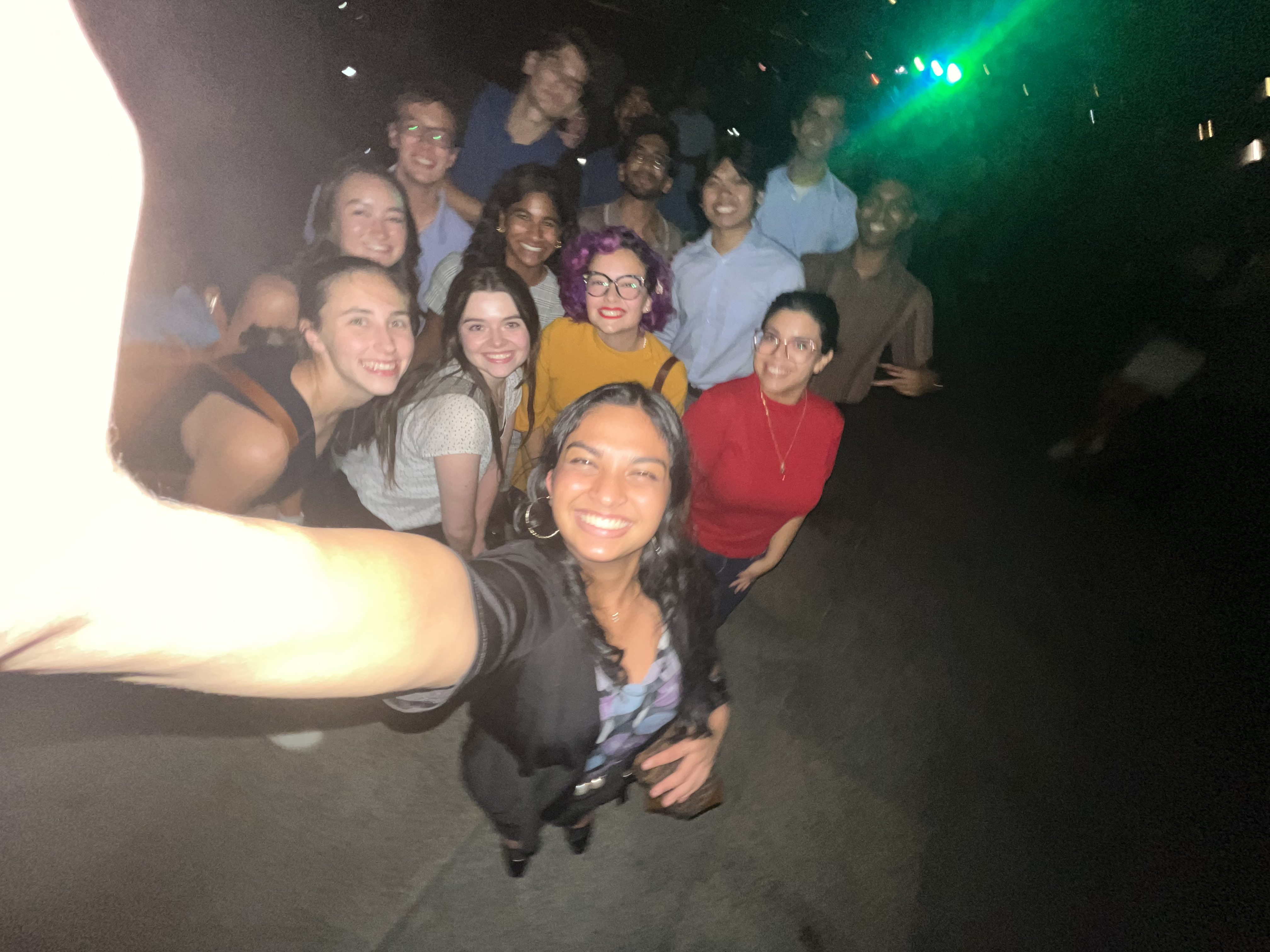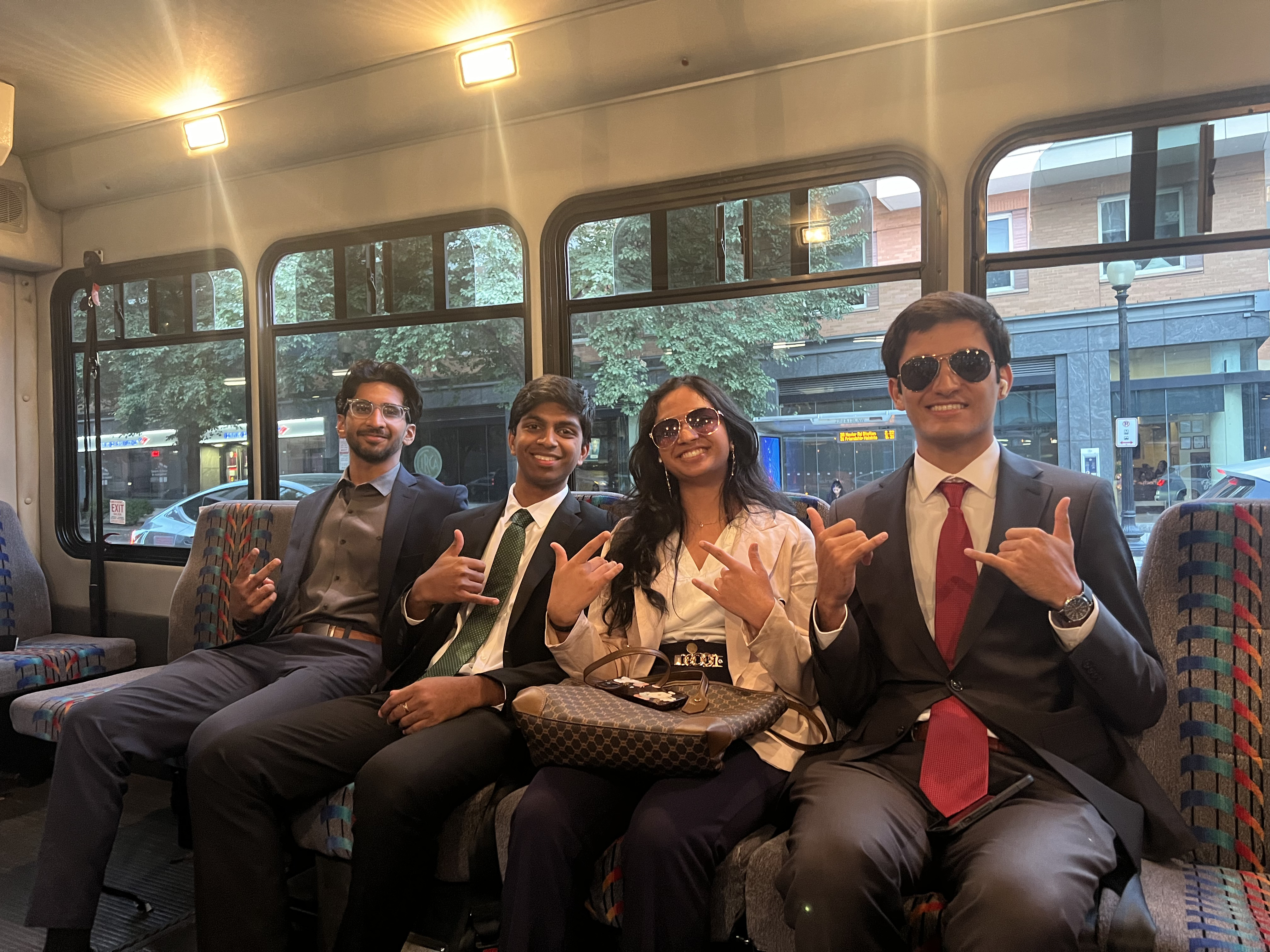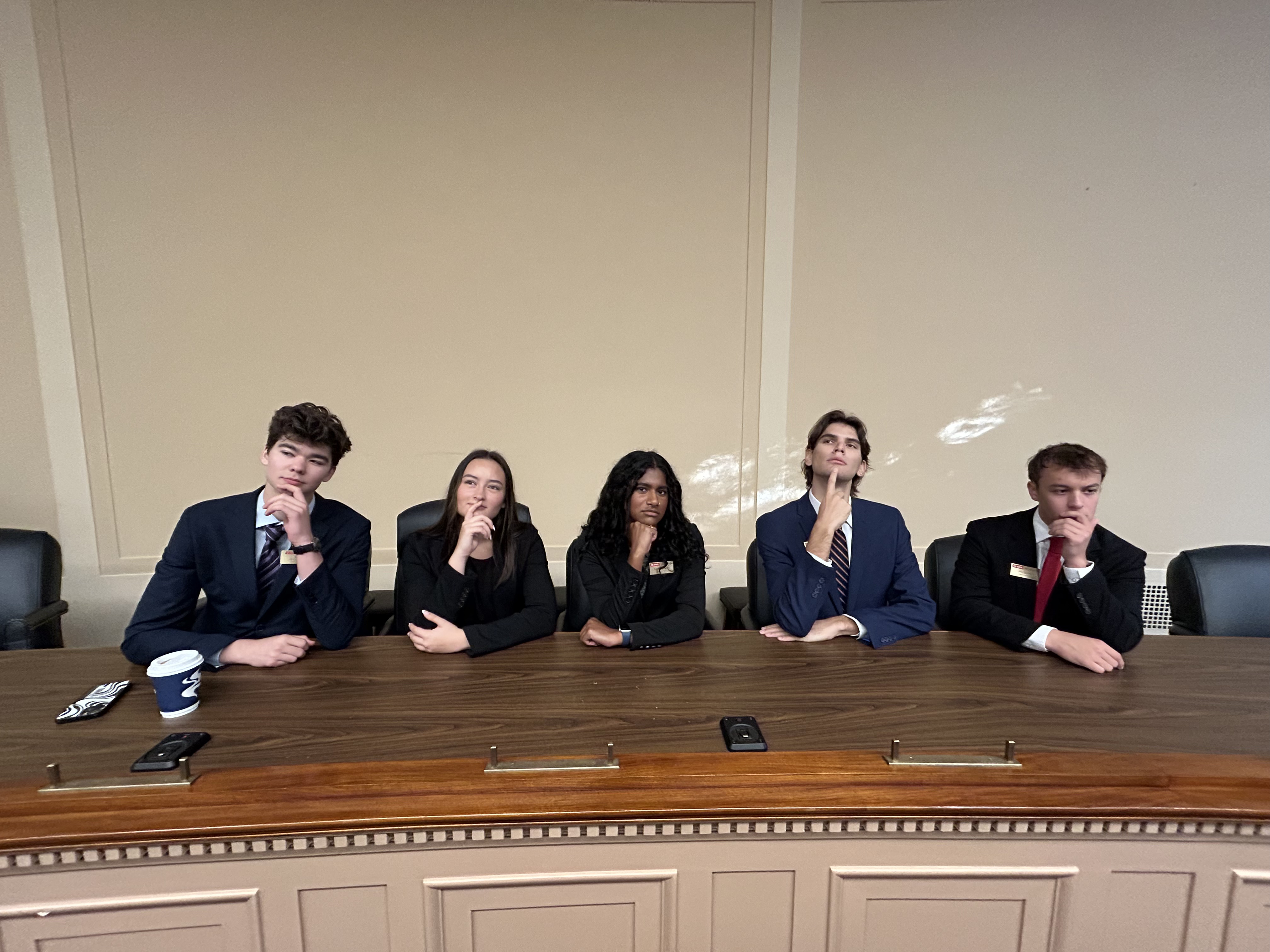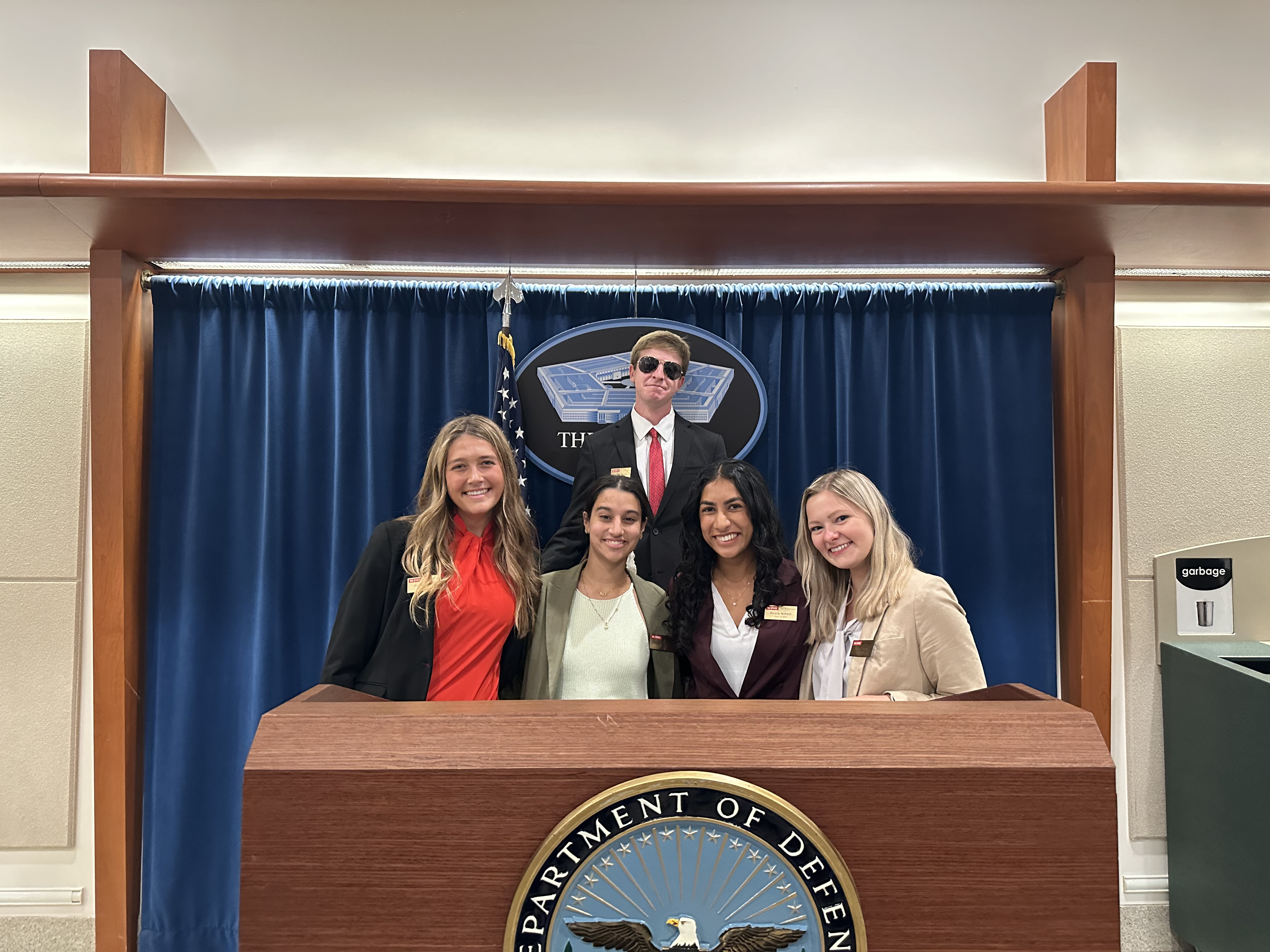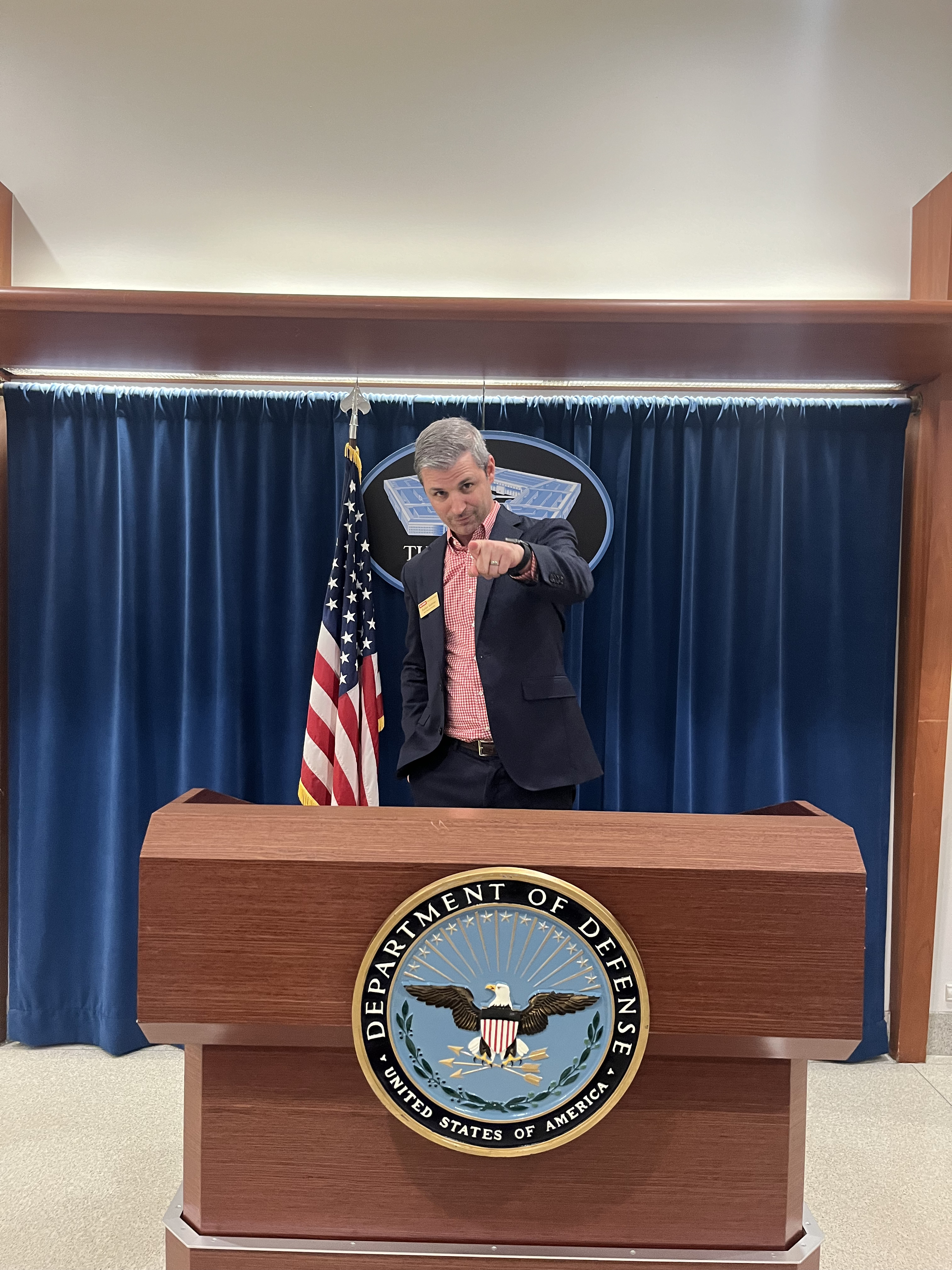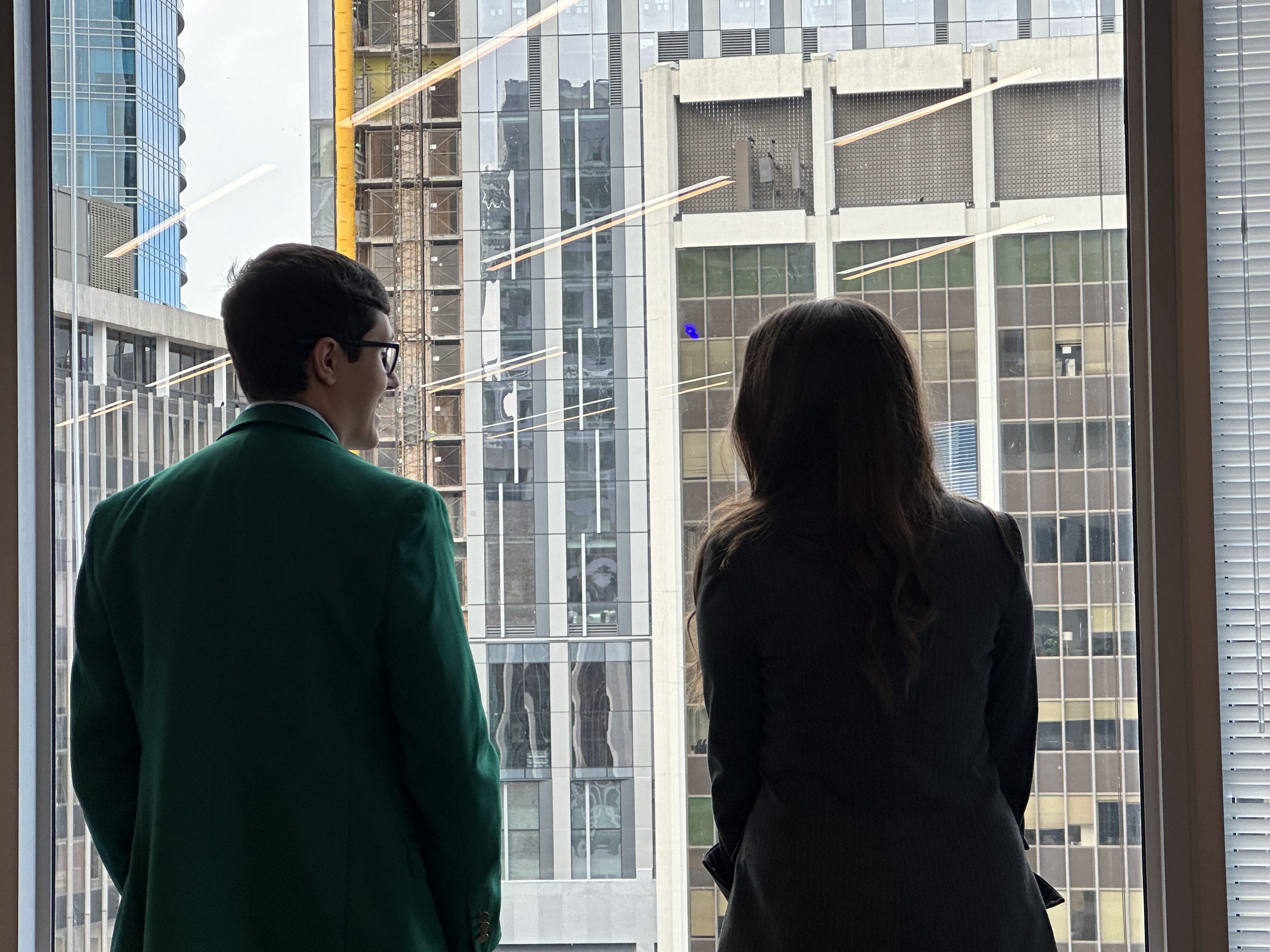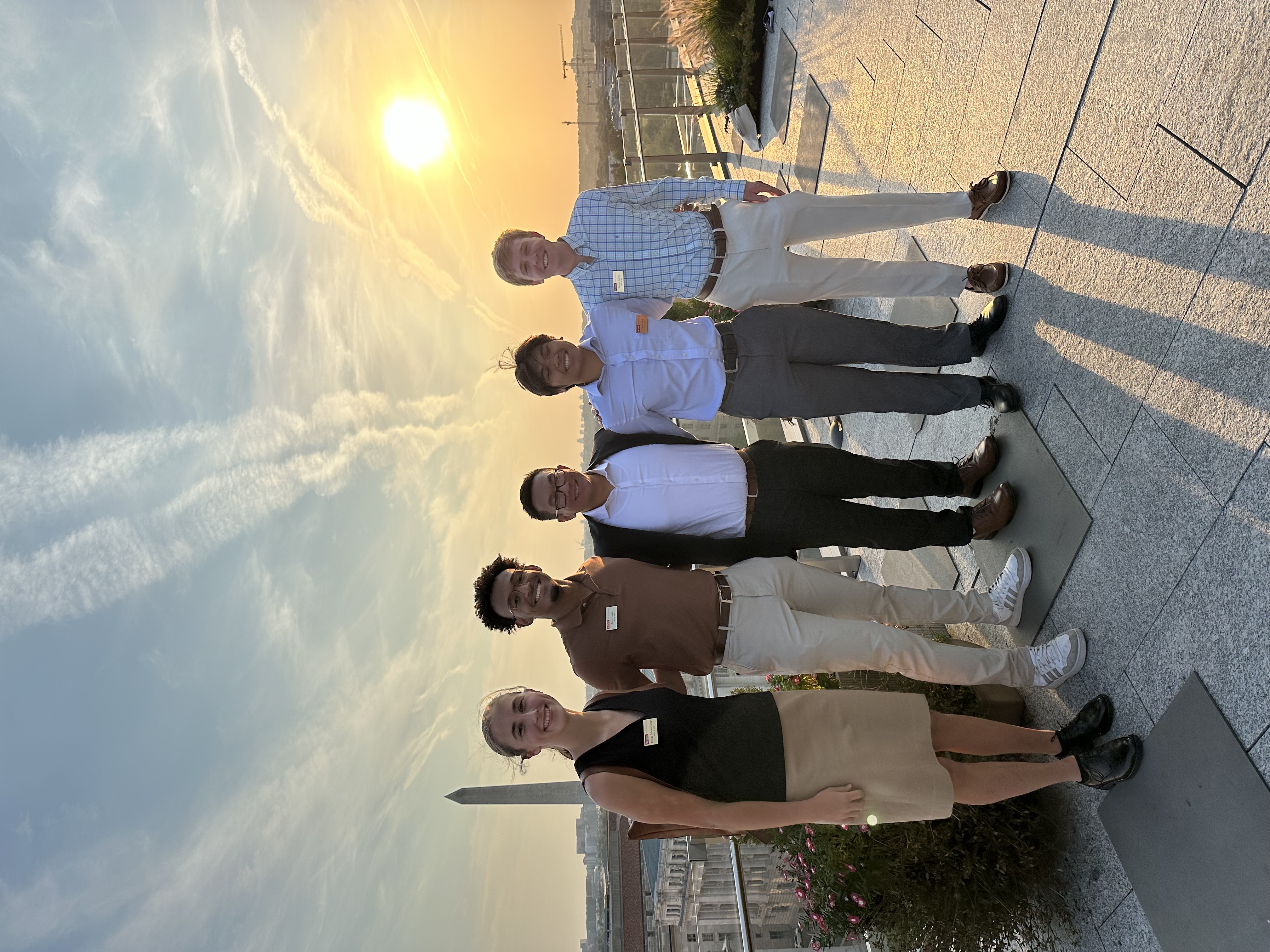By Sohini Das ’27
In October 2024, the Class of 2027 Park Scholars embarked on Learning Lab II, immersing ourselves in the complex and ever-urgent issue of health care reform and accessibility in the United States. This year’s Learning Lab II focused on how leadership shapes the health care landscape, with an emphasis on reform, accessibility, and the societal factors influencing these efforts. From government officials to health care advocates and policy advisors, we encountered diverse perspectives on pressing healthcare issues. As we progressed through each session, we gained a deeper understanding of the complexities at play, encouraging us to think critically and ask challenging questions about the health care system’s future.
Our pre-trip preparation laid the groundwork for this transformative experience. We explored health care disparities, social determinants of health, and the ethical dilemmas that leaders face in balancing profit-driven motives with the need for accessible, high-quality care. Guided by NC State professors and alumni, and insights from our meeting with Representative Deborah Ross, we arrived in Washington ready to engage deeply with these issues. This preparation enabled us to examine the ethical considerations and strategic decision-making processes that are essential in navigating healthcare reform.
Upon arriving in Washington, we attended a series of panels and discussions that offered varied perspectives on health care policy from nurses and patients to policymakers and reporters. On day one, we met with a variety of speakers at Deloitte’s office in Arlington. We engaged in a panel discussion that shed light on health care reforms from a corporate standpoint, with a focus on how private sector decisions impact public health. Following this, we participated in small-group sessions, allowing us to ask more personal questions, seek advice, and reflect on our potential roles as future leaders.
To me, one of the most impactful parts of our trip took place at the Rayburn House Office Building on day two. Here, we listened to speakers who provided firsthand accounts of the current policy debates on biosecurity in an era marked by rapid technological advancements and global instability. With the rise of biosecurity issues in a world facing ongoing wars and the aftermath of the COVID-19 pandemic, these discussions felt especially timely. Hearing directly from policy advisors and legislative staff, we gained insights into how new health security threats, from bioterrorism to emerging pathogens, are reshaping national policies. This session underscored the importance of adaptable and proactive leadership in responding to evolving global health challenges. We had the pleasure of hearing from Gentry Smith, Assistant Secretary of State for Diplomatic Security. This was his third time meeting with Park Scholars on the Learning Lab II trip, so we were especially grateful that he had the time to talk with our group.
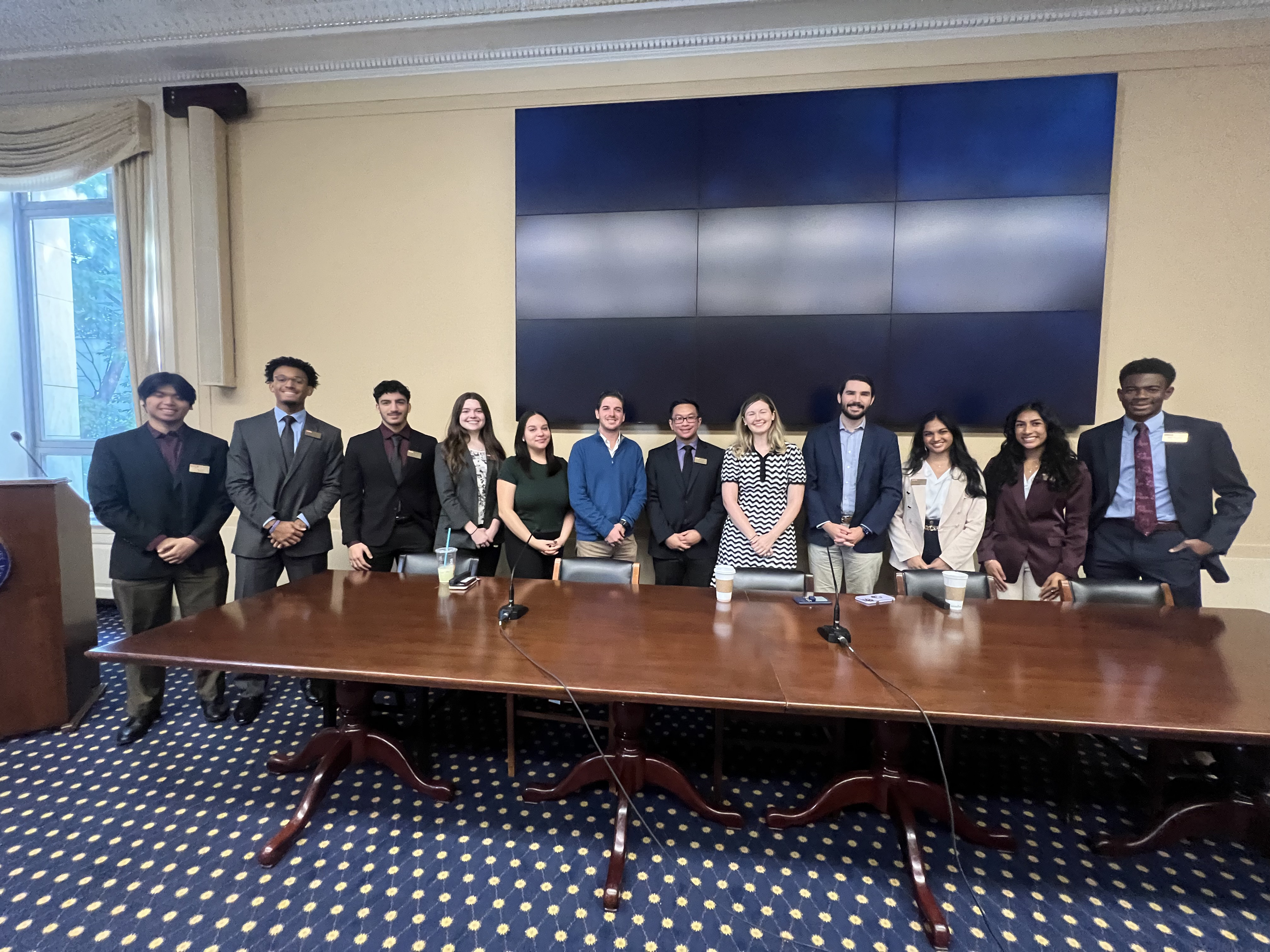
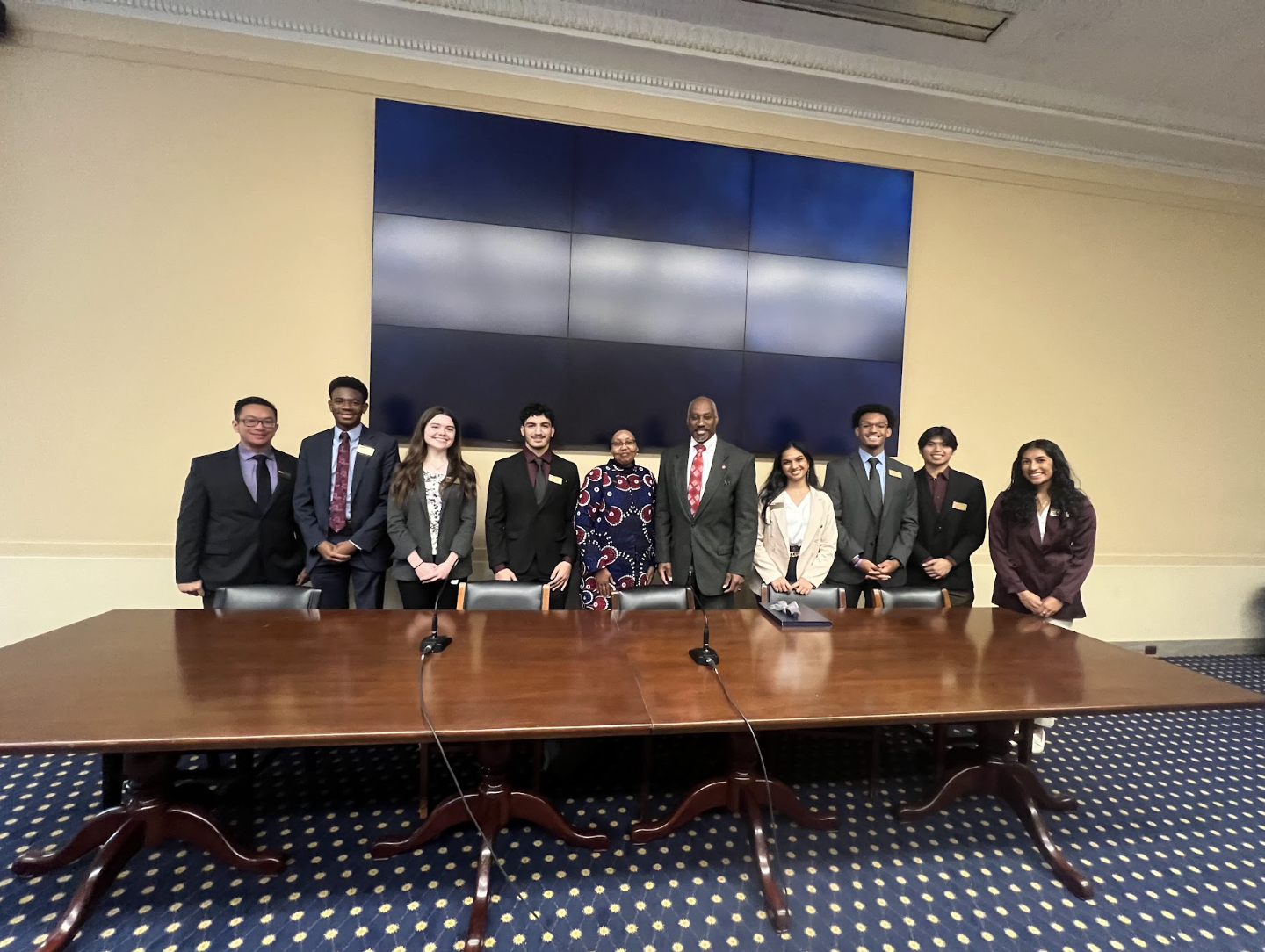
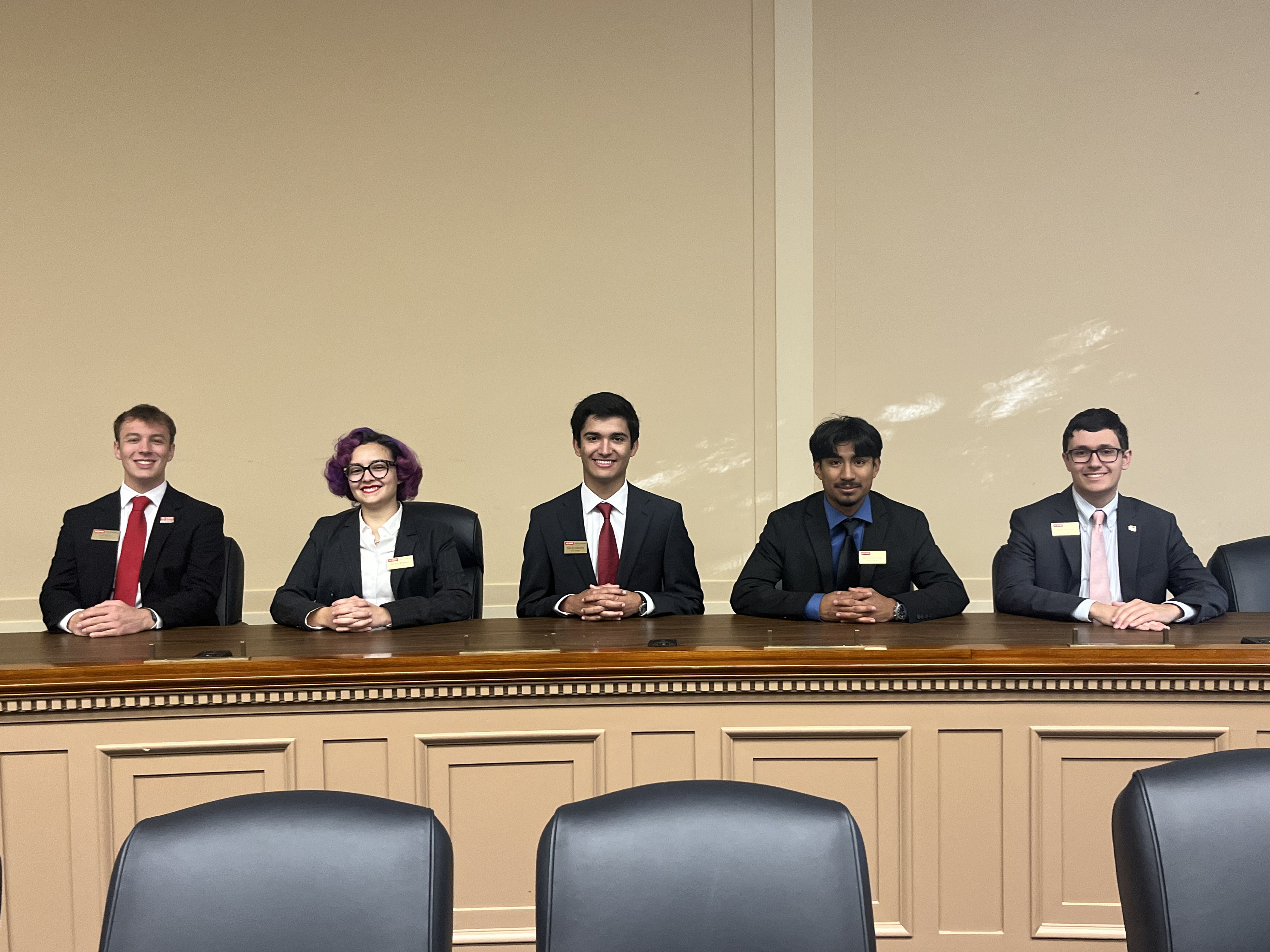
We also had the unique opportunity to visit the Pentagon, where we learned about health care within the context of military service. This experience offered a new perspective on how different policies impact the readiness and well-being of service members and veterans. For many of us, this highlighted the broader implications of healthcare policy, showing that healthcare reform is a matter of national security, as well as a public health priority.
In addition to these formal sessions, we enjoyed cultural experiences, including dinner at the iconic Kennedy Center and a monument tour, which allowed us time to reflect on the nation’s values and ideals. These moments outside the formal schedule provided space to internalize the day’s lessons, fostering a deeper appreciation for the connection between leadership, public service and the pursuit of a just society.
Throughout Learning Lab II, our class grappled with profound questions: How can healthcare reform reduce barriers to quality care? What role do social determinants—such as race, gender, and socioeconomic status—play in shaping health care access? And how can leaders balance the economic demands of a for-profit healthcare system with the ethical imperative to provide accessible care for all? These questions became more than theoretical exercises; they were the backbone of our conversations as we reflected on what it means to lead with integrity in the field of health care and beyond.
As we returned to NC State, we carried with us new insights into the complexities of health care reform, armed with examples of effective leadership and civic engagement that we witnessed firsthand. Learning Lab II broadened our perspectives and underscored the importance of informed, compassionate leadership in tackling society’s greatest challenges. Reflecting on this journey, we feel better equipped to contribute to meaningful change, guided by a renewed commitment to service and the pursuit of justice in health care and other essential systems.

